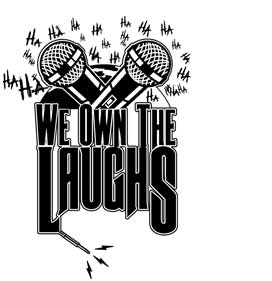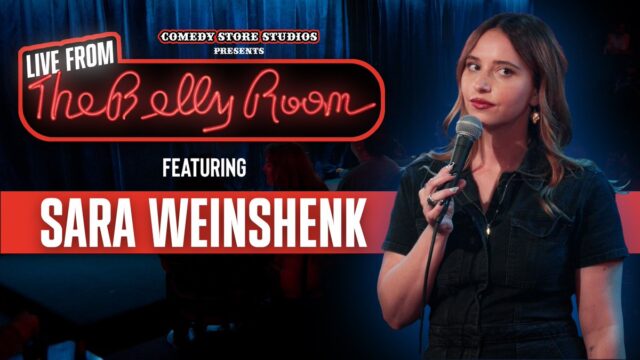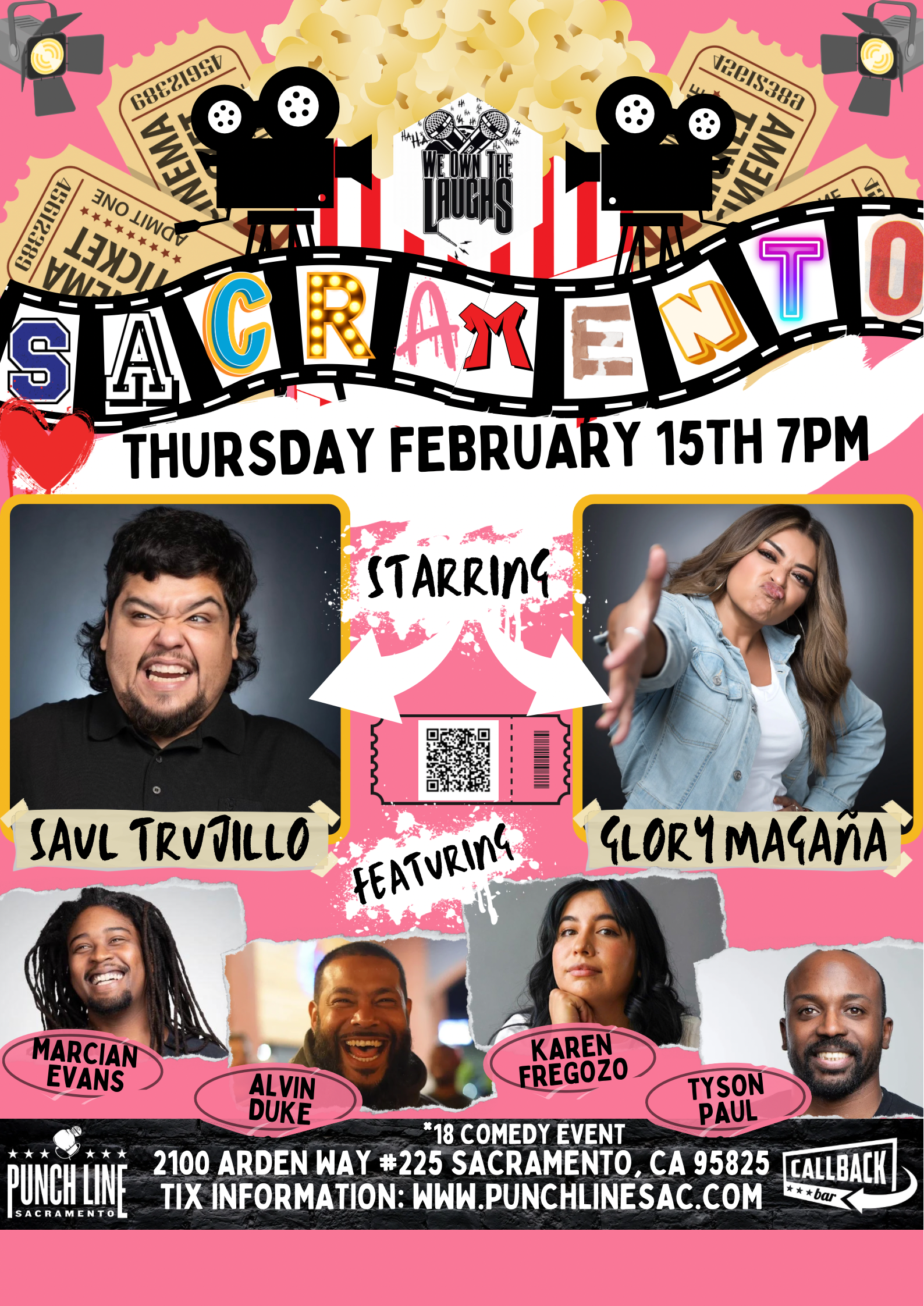From Comedy Store Studios, Live From the Belly Room is a series of short sets from the comedians we think are the future stars of the business. Watch them now so you can tell your friends “I knew them when…”
Comedian Sara Weinshenk latest stand-up set on Comedy Store Studios‘ Live From The Belly Room series.
Sara delivers us one-liners.
Then she talks about her first time at a strip club, her Dad’s weather girl crushes. Sara talks about what will get her back in church and pitches fragrances by comedians.
The Comedy Store: 8433 W. Sunset Boulevard is a legendary address. It is the home of The Comedy Store, the greatest stand-up comedy club in the world. The Store was founded April 7, 1972, on the Sunset Strip in West Hollywood by comedian Sammy Shore, his wife Mitzi and comedy writer Rudy DeLuca. It started because Sammy needed a place to work out when he wasn’t on the road. Sammy was the longtime opening act for Elvis Presley. It was the first all stand-up comedy nightclub in the world. In the beginning, since Sammy was frequently on the road, his wife, Mitzi assumed the nightly operations of the club and selected and scheduled the comedians that performed there. It was Mitzi who coined the name “The Comedy Store.” It quickly become a hot club on the Strip where the famous comedian friends of Sammy and Rudy, such as Redd Foxx, Tim Conway, Buddy Hackett, and Jonathan Winters could “work out” new sets or just relax among friends before setting out on their national and worldwide tours. For newcomers starting a career in comedy, The Comedy Store was a one stop shop to watch all the greats on stage. As luck would have it, the Comedy Store was born the same month that Johnny Carson moved the Tonight Show from New York to Los Angeles and a flood of comics immediately followed Johnny out West, hoping to get their shot on his show. Mitzi possessed a special quality of being keenly able to spot raw talent and of the importance of nurturing and understanding the needs of creative artists. It was Mitzi who determined that the showroom walls where the comedians work should be entirely black so that once the stage is lit, the audience is fixated entirely on the single performer on stage. It was Mitzi who deemed this place to be more than just a nightclub, but rather an “artist’s colony” designed to develop the unique art form of stand-up comedy and to create a family-like environment where stand-ups can develop their craft and then “pay it forward” by mentoring newer comics that follow behind them. That philosophy continues today.
The location itself has long been considered world famous and iconic, as it was previously the home of Ciro’s supper club. In the 1940s and 50s, Ciro’s was the hangout for movie people and was one of “the” places to be seen. On any given night, Ciro’s was frequented by powerhouse celebrities of the time.
The Comedy Store would become entirely Mitzi’s to own and operate as the result of her divorce settlement with Sammy in 1974. Mitzi never looked back. She was an artistic genius who scheduled the comedians who performed each night and placed them in just the right order. Mitzi created this world as an artist’s colony and the comedians she selected made it world famous. During this time, Mitzi was selecting and supervising a whole new generation of stand-up comedians to perform at the Comedy Store. This group of future stars included Robin Williams, David Letterman, Jay Leno, Garry Shandling, Paul Mooney, Jimmie “J.J.” Walker, Andy Kaufman, and Michael Keaton. It seemed as if every new sitcom star of the era could trace their career roots to The Comedy Store. This was the Comedy Store’s Artist’s Colony period, an era heralded today in comedy histories, documentaries, biographies and television shows.



![Lance Woods “Chocolate Sundaes” Performance [Video]](https://weownthelaughs.com/wp-content/uploads/2024/04/maxresdefault-14-1-238x178.jpg)
![Tiger Milf w/ Jiaoying Summers Feat. Alfred Robles [Podcast]](https://weownthelaughs.com/wp-content/uploads/2024/04/IMG_3175-238x178.jpeg)
![First Date w/ Lauren Compton Feat. Paul Scheer [Podcast]](https://weownthelaughs.com/wp-content/uploads/2024/04/maxresdefault-13-1-238x178.jpg)

